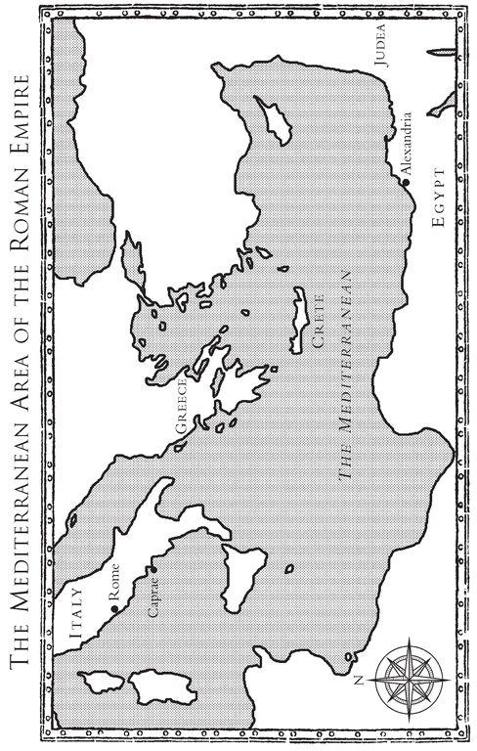The Legion


To Ahmed (the leader of the Angels) and Mustafa (the Chosen One)
As ever, I am grateful to my wife, Carolyn, for checking over the script as I worked through the novel, and for putting up with me while I was thoroughly lost ‘in’ the book. Thanks also to my father, Tony, for casting another set of eyes over the final draft. Much of the background detail was gleaned from various research trips to Egypt and down the Nile. My thanks to Ahmed and Mustafa for sharing their knowledge of their fascinating country. There are few nations with such a rich and ancient heritage and they are rightly proud of Egypt.

The Twenty-Second Legion comprised some five and a half thousand men. The basic unit was the century of eighty men commanded by a centurion with an optio acting as second in command. The century was divided into eight-man sections which shared a room together in barracks and a tent when on campaign. Six centuries made up a cohort, and ten cohorts made up a legion, with the first cohort being double-size. Each legion was accompanied by a cavalry unit of one hundred and twenty men, divided into four squadrons, who served as scouts and messengers. In descending order the main ranks were as follows:
The
legate
was a man from an equestrian rather than a senatorial background, as was the case with legions outside Egypt. The legate would command the legion for several years and hope to make something of a name for himself in order to enhance his subsequent political career.
The
camp prefect
was a veteran who would previously have been the chief centurion of the legion and was at the summit of a professional soldier’s career.
Six
tribunes
served as staff officers. These would be men in their early twenties serving in the army for the first time to gain administrative experience before taking up junior posts in civil administration. The senior tribune was different. He was destined for high political office and eventual command of a legion.
Sixty
centurions
provided the disciplinary and training backbone of the legion. They were hand-picked for their command qualities. The most senior centurion commanded the First Century of the First Cohort.
The four
decurions
of the legion commanded the cavalry squadrons and hoped for promotion to the command of auxiliary cavalry units.
Each centurion was assisted by an
optio
who would act as an orderly, with minor command duties. Optios would be waiting for a vacancy in the centurionate.
Below the optios were the
legionaries
, men who had signed on for twenty-five years. In theory, a man had to be a Roman citizen to qualify for enlistment, but recruits were increasingly drawn from local populations and given Roman citizenship on joining the legions.
Lower in status than the legionaries were the men of the
auxiliary cohorts
. These were recruited from the provinces and provided the Roman Empire with its cavalry, light infantry and other specialist skills. Roman citizenship was awarded on completion of twenty-five years of service.
The Romans came to naval warfare rather late in the day and it was not until the reign of Augustus (27 BC—14 AD) that they established a standing navy. The main strength was divided into two fleets, based at Misenum and Ravenna, with smaller fleets based in Alexandria and other large ports around the Mediterranean. As well as keeping the peace at sea, the navy was tasked with patrolling the great rivers of the Empire such as the Rhine, the Danube and, of course, the Nile.
Each fleet was commanded by a
prefect
. Previous naval experience was not a requirement and the post was largely administrative in nature.
Below the rank of prefect the huge influence of Greek naval practice on the imperial fleets is evident. The squadron commanders were called
navarchs
and commanded ten ships. Navarchs, like the centurions of the legions, were the senior officers on permanent tenure. If they wished, they could apply for transfer into the legions at the rank of centurion. The senior navarch in the fleet was known as the
Navarchus Princeps
, who functioned like the senior centurion of a legion, offering technical advice to the prefect when required.
The ships were commanded by
trierarchs
. Like the navarchs, they were promoted from the ranks and were responsible for the running of individual ships. However, their role did not correspond to that of a modern sea captain. They were in charge of the sailing of the ship but, in battle, the senior figure was actually the officer in charge of the ship’s complement of marines.
As far as the ships go, the most common class of vessel was the small patrol galley, usually termed a liburnian. These were propelled by oars or sails and had a small complement of marines. In the same class was the bireme, somewhat larger and more capable of holding its own in battle. The larger warships, the triremes, quadrimes and quinquiremes, were something of a rarity by the age in which this book is set, relics of a bygone age of naval warfare.


ONE
T
he commander of the naval supply station at Epichos was having his morning meal when the optio in charge of the dawn watch made his report. A light drizzle – the first rain in months – had been falling since first light and the optio’s cloak was covered with droplets that looked like tiny beads of glass.
‘What is it, Septimus?’ Trierarch Philipus asked tersely, dipping a hunk of bread into a small bowl of garum sauce in front of him. It was his custom to walk his rounds of the small fort and then return to his quarters to have his breakfast, without interruption.
‘Beg to report a ship has been sighted, sir. Heading along the coast towards us.’
‘A ship, eh? Just happens to be passing along one of the busiest sea lanes in the Empire.’ Philipus took a deep breath to cover his impatience. ‘And the marine on watch thinks that’s unusual?’
‘It’s a warship, sir. And it’s making for the entrance to the bay.’ The optio ignored the sarcasm and continued to deliver his report in the same deadpan voice that he had used ever since the trierarch had taken command of the outpost nearly two years ago. At first Philipus had been delighted at the promotion. Before, he had commanded a sleek liburnian warship in the Alexandrian flotilla and had grown heartily sick of the stifling lack of opportunity that went with being a junior officer commanding a small vessel that rarely ventured out of the port’s eastern harbour. The appointment to the small naval station at Epichos had given him independence, and at first Philipus had striven to make his supply station a model of efficiency. But, as the months dragged on, there had been no sign of any excitement and the men of the station had little to do beyond provisioning the warships or imperial packets that occasionally entered the small, low-lying harbour as they made their way along the coast of Egypt. The only other duty Philipus had to discharge was to send a regular patrol up the Nile delta to remind the natives that they lived under the watchful gaze of their Roman masters.
And so Philipus eked out his days commanding a half century of marines and as many sailors, together with an old bireme – the
Anubis
– that had once served in the fleet that Cleopatra had taken to support her lover, Mark Antony, in his war against Octavian. After Antony’s defeat at Actium, the bireme had been absorbed into the Roman navy and served with the Alexandrian fleet before it was finally sent to end its days at Epichos, beached in front of the small mud-brick fort that overlooked the bay.
It was a dismal posting, Philipus reflected. The coastline of the Nile delta was low and featureless, and much of the bay was taken up by mangroves where crocodiles lurked, lying still like fallen palm logs as they waited for any prey to come close enough to be rushed. The trierarch lived in hope of adventure. However, he mused, the nearest he would ever get to that this day was overseeing the loading of biscuit, water and any supplies of cordage, sail or spars on to the new arrival. Hardly worth disturbing his breakfast for.
‘A warship, eh?’ Philipus bit off some bread and chewed. ‘Well, it’s probably on patrol.’
‘I don’t think so, sir,’ said Optio Septimus. ‘I’ve checked the station’s log book and no warships are due to put into Epichos for at least a month.’
‘Then it’s been sent on some detached duty,’ Philipus continued dismissively. ‘The captain has made a landfall to pick up water and rations.’
‘Shall I order the men to arms, sir?’
Philipus looked up sharply. ‘Why? What’s the point?’
‘Standing orders, sir. If an unknown vessel is sighted, the garrison is to be alerted.’
‘It’s not an unknown vessel, is it? It’s a warship. We are the only people who operate warships in the eastern Mediterranean. Therefore it’s not unknown, and there’s no need to trouble the men, Optio.’
Septimus stood his ground. ‘Unless the ship is making a scheduled call, it is unknown, according to the book, sir.’
‘The book?’ Philipus puffed his cheeks. ‘Look here, Optio, if there is any sign of hostility then you can call out the garrison. Meanwhile, inform the quartermaster that we have a visitor and that he and his staff are to be ready to revictual the warship. Now, if I may, I’ll finish my breakfast. Dismissed.’
‘Yes, sir.’ The optio stood to attention, saluted and turned to stride down the short colonnade towards the exit to the commander’s quarters. Philipus sighed. He felt guilty about treating the man with disdain. Septimus was a good junior officer, efficient, even if he wasn’t terribly imaginative. He had been right to cite standing orders, the same orders that Philipus had carefully penned in the early days of his appointment when the first flush of enthusiasm for his new post had governed his actions.
Philipus finished the last mouthful of bread, drained his watered wine and rose to make his way to his sleeping chamber. He paused by the pegs on the wall, and then reached for his breastplate and helmet. It would be as well to greet the commander of the ship formally, and to ensure that he was efficiently served, so that a favourable impression was conveyed back to the fleet in Alexandria. As long as his record was good, there was always a chance that he might be promoted to a more prestigious command, and could leave Epichos behind him.